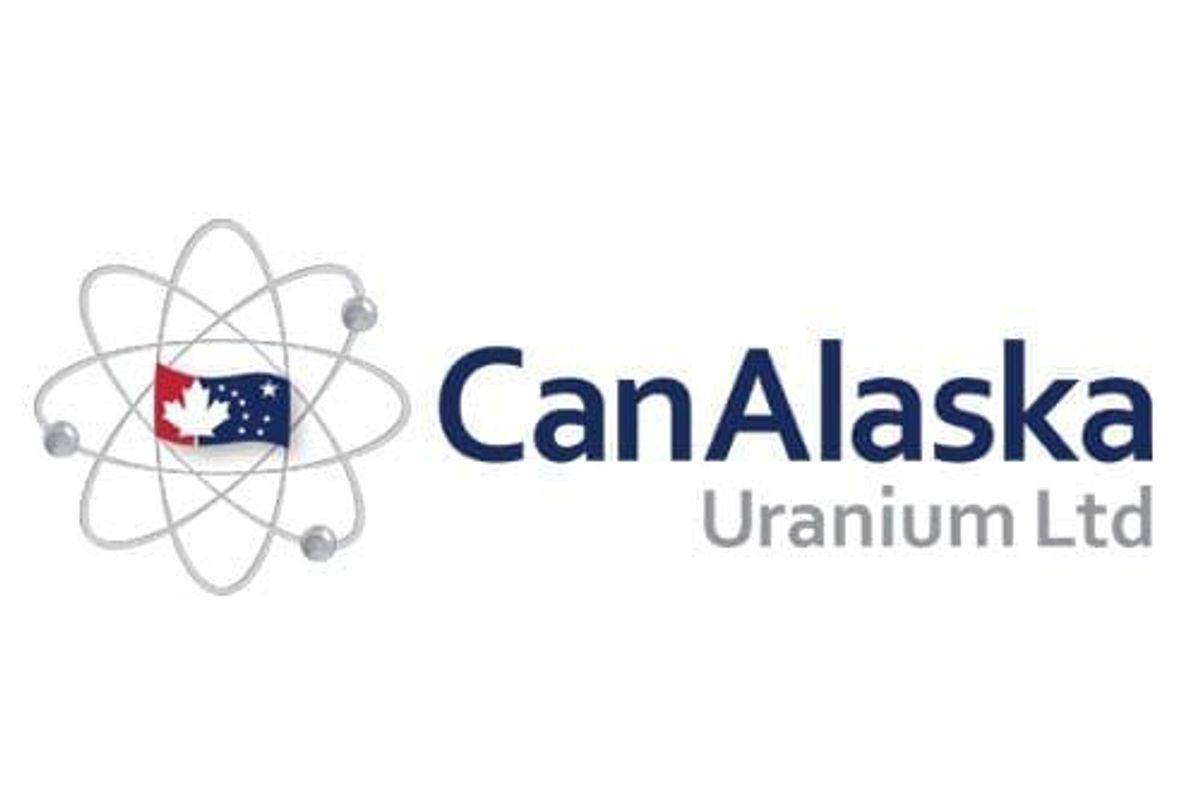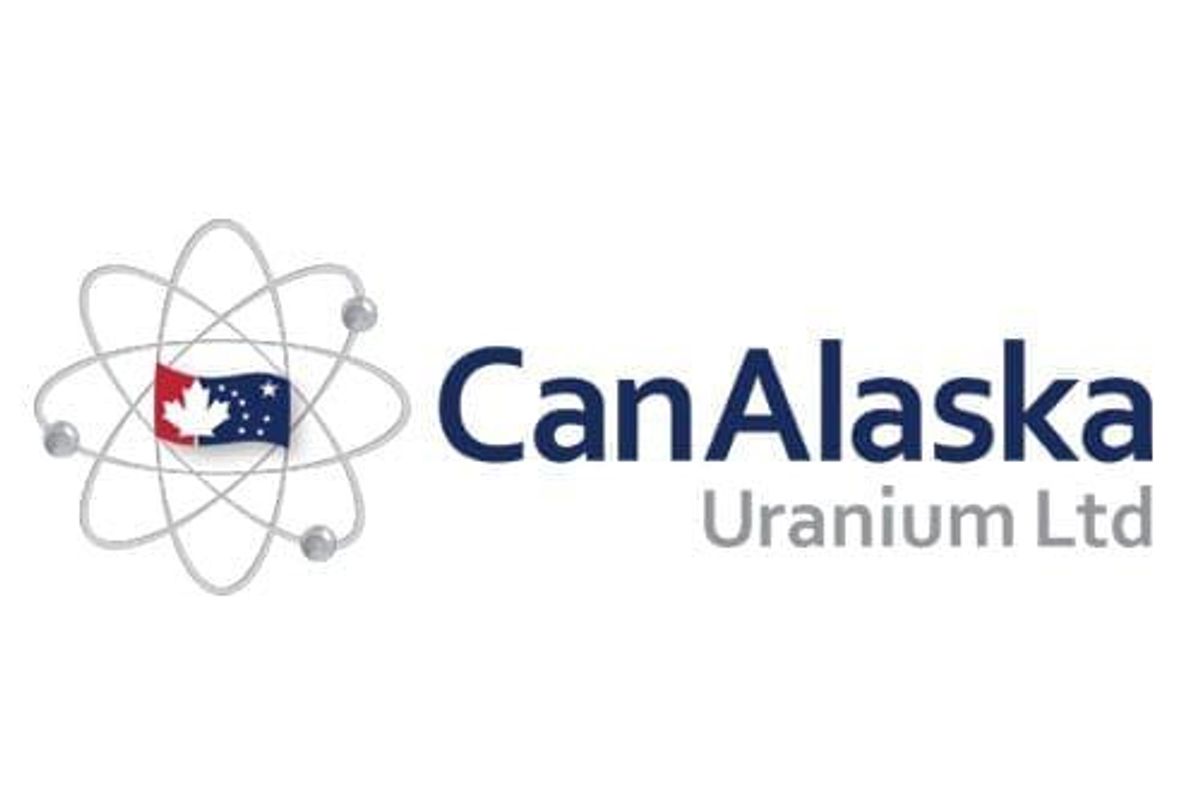
CanAlaska Uranium Ltd. (TSXV: CVV) (OTCQX: CVVUF) (FSE: DH7) ("CanAlaska" or the "Company") announces that it proposes to undertake a non-brokered private placement of securities to raise total gross proceeds of up to $7.5 million (the "Offering"). The Offering will be comprised of a combination of: (i) non-flow-through units (the "NFT Units") to be sold at a price of $0.36 per NFT Unit; (ii) flow-through units of the Company (each, a "FT Unit") to be sold at a price of $0.425 per FT Unit; and (iii) flow-through units to be sold to charitable purchasers (each, a "Charity FT Unit") to be sold at a price of $0.5575 per Charity FT Unit.
Each NFT Unit will consist of one non-flow-though common share of the Company (each, a "NFT Share") and one common share purchase warrant (each, a "Warrant"). Each FT Unit will consist of one common share of the Company to be issued as a "flow-through share" within the meaning of the Income Tax Act (Canada), (each, a "FT Share") and one half (½) of one common share purchase warrant (each whole warrant, a "Warrant"). Each Charity FT Unit will consist of one common share of the Company to be issued as a "flow-through share" within the meaning of the Income Tax Act (Canada), (each, a "FT Share") and one common share purchase warrant (each, a "Warrant"). Each Warrant will entitle the holder to purchase one common share of the Company (each, a "Warrant Share") at a price of $0.56 at any time on or before that date which is 24 months after the closing date of the Offering. The exact number of NFT Units, FT Units and Charity FT Units sold will be determined at closing.
The gross proceeds received from the sale of the FT Units and the Charity Units will be used for work programs on the Company's exploration properties. The net proceeds received from the sale of the NFT Units will be used for general working capital.
The Company will pay finders' fees comprised of cash and non-transferable warrants in connection with the Offering, subject to compliance with the policies of the TSX Venture Exchange. Red Cloud Securities Inc. is acting as a finder with respect to the Offering.
All securities issued and sold under the Offering will be subject to a hold period expiring four months and one day from their date of issuance. Completion of the Offering and the payment of any finders' fees remain subject to the receipt of all necessary regulatory approvals, including the approval of the TSX Venture Exchange.
This news release does not constitute an offer to sell or a solicitation of an offer to buy any of the securities in the United States of America. The securities have not been and will not be registered under the United States Securities Act of 1933 (the "1933 Act") or any state securities laws and may not be offered or sold within the United States or to U.S. Persons (as defined in the 1933 Act) unless registered under the 1933 Act and applicable state securities laws, or an exemption from such registration is available.
About CanAlaska Uranium
CanAlaska Uranium Ltd. (TSXV: CVV) (OTCQX: CVVUF) (FSE: DH7) holds interests in approximately 350,000 hectares (865,000 acres), in Canada's Athabasca Basin - the "Saudi Arabia of Uranium." CanAlaska's strategic holdings have attracted major international mining companies. CanAlaska is currently working with Cameco and Denison at two of the Company's properties in the Eastern Athabasca Basin. CanAlaska is a project generator positioned for discovery success in the world's richest uranium district. The Company also holds properties prospective for nickel, copper, gold and diamonds. For further information visit www.canalaska.com.
The Qualified Person under National Instrument 43-101 Standards of Disclosure for Mineral Projects for this news release is Nathan Bridge, MSc., P. Geo., Vice-President Exploration for CanAlaska Uranium Ltd., who has reviewed and approved its contents.
On behalf of the Board of Directors
"Cory Belyk"
Cory Belyk, P.Geo., FGC
CEO, President and Director
CanAlaska Uranium Ltd.
Contacts:
Cory Belyk, CEO and President
Tel: +1.604.688.3211 x 138
Email: cbelyk@canalaska.com
General Enquiry
Tel: +1.604.688.3211
Email: info@canalaska.com
Neither TSX Venture Exchange nor its Regulation Services Provider (as that term is defined in the policies of the TSX Venture Exchange) accepts responsibility for the adequacy or accuracy of this release.
Forward-looking information
All statements included in this press release that address activities, events or developments that the Company expects, believes or anticipates will or may occur in the future are forward-looking statements. These forward-looking statements involve numerous assumptions made by the Company based on its experience, perception of historical trends, current conditions, expected future developments and other factors it believes are appropriate in the circumstances. In addition, these statements involve substantial known and unknown risks and uncertainties that contribute to the possibility that the predictions, forecasts, projections and other forward-looking statements will prove inaccurate, certain of which are beyond the Company's control. Readers should not place undue reliance on forward-looking statements. Except as required by law, the Company does not intend to revise or update these forward-looking statements after the date hereof or revise them to reflect the occurrence of future unanticipated events.
Not for distribution to United States newswire services or for dissemination in the United States.

To view the source version of this press release, please visit https://www.newsfilecorp.com/release/187989
